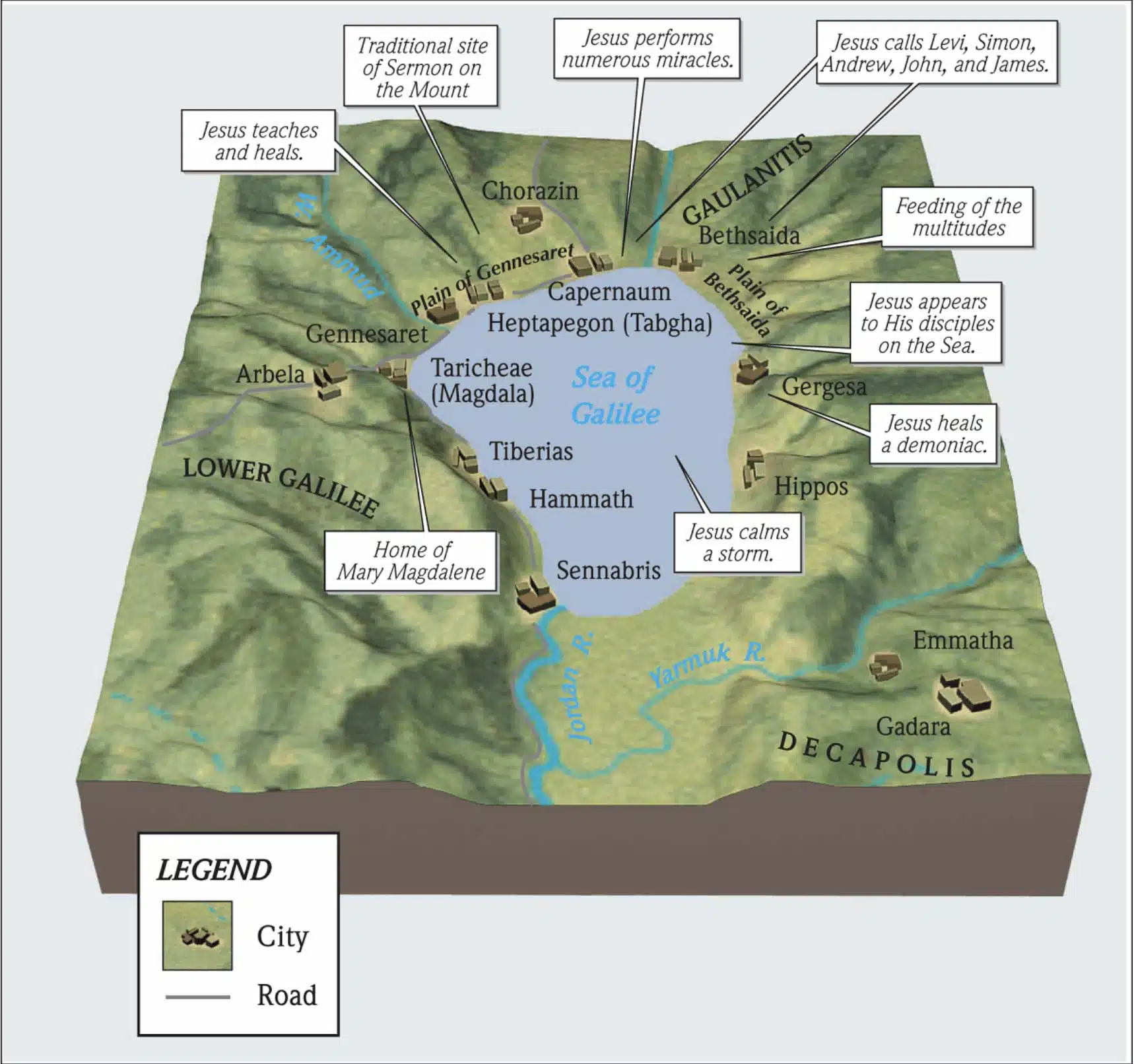Jesus teaches His disciples not to judge other people because they will be judged according to the same standard they use to criticize others. He illustrates this point with the humorous image of a man with a log coming out of his eye trying to help remove a speck of dust in his brother’s eye.
The parallel account of Matthew 7:1-5 is found in Mark 4:24 and Luke 6:37-42.
Jesus taught the mercy principle in both the Makarios chiasm of the Beatitudes and in what is commonly referred to as ‘the Lord’s Prayer.’ “Makarios (fulfilled) are the merciful, for they shall receive mercy” (Matthew 5:7). “Forgive us our debts as we also have forgiven our debtors” (Matthew 6:12). In both instances it was stated ‘positively,’ that is, it was phrased in what we ought to do. Here Jesus gives the same principle ‘negatively.’ He words it in such a way to tell us what we should not do.
Do not judge (v 1). What Jesus means by judge is to take offense at another person’s actions, words, expressions, etc. Do not keep track of the wrongs of another. Do not judge another person’s behavior or attitude to see if they are morally wrong and you are morally superior. This attitude is often called judgmentalism. It is the silent and sometimes not so silent condemnation of other people and their behavior. Judging others is the opposite of how Paul describes love in 1 Corinthians 13:5, “[love] does not take into account a wrong suffered.” Regardless of whether or not someone’s behavior harms you, Jesus says do not judge.
The reason why Christ teaches not to judge is because the inverse of the mercy principle also applies. Do not judge so that you will not be judged (v 1). For in the way you judge, you will be judged (v 2). As those who show mercy will receive mercy so will those who judge receive judgment in the way they judge others. Jesus continues, and by your standard of measure, it will be measured to you (v 2). We will all be measured and judged according to our own judgment and standard of measure. If we want a lenient measure of mercy, we should be merciful. If we want a strict measure of judgment, we should be quick to judge others.
Here, Jesus presumes His disciples understand that every believer will give an account to God for the deeds done during their lifetime. This principle is confirmed many times in the epistles (1 Corinthians 3:11-15; 2 Corinthians 5:9-10; Romans 14:10-14; Hebrews 4:12-13). Of course we all want mercy for ourselves, which is why Jesus teaches His disciples to show mercy and be quick to forgive, and not to judge others for their faults. This is another version of treating others the way we desire to be treated. In this case, we should judge or grant mercy in precisely the same way we want God to judge or grant mercy to us. Further, Jesus promises that this is exactly what we are going to get. God will judge us by the measure or standard we set for judging other people during our lifetime.
Jesus humorously illustrates the folly of how we inaccurately perceive our own sin in comparison to others. Why, he asks, do you look at the speck that is in your brother’s eye, but do not notice the log that is in your own eye? (v 3). There are two parts to this question.
First is, why do you look at the speck that is in your brother’s eye? (v 3). A speck is a small object, like a piece of sawdust. It would be practically invisible to anyone else. The only people aware of sawdust in a person’s eye would be someone whose eye it is actually bothering, and perhaps someone who is carefully searching for the speck to help wash it out. But in Jesus’s moral joke, He says you are not looking to help someone remove the speck, you are looking for something at which to gawk. And your looking is so intense, you do not notice the log that is in your own eye (v 3).
Jesus then brings out a painfully absurd truth in the second part of His question: But why do you not notice the log that is in your own eye? (v 3). A log or plank coming out of an eye is far bigger than a speck. A speck is a nuisance. A log is a real hindrance and a potential threat to lose your eye. It would be obvious and unsightly to everyone around you. There is a situational irony that the one who has the highly visible moral log is judging the brother with a nearly invisible moral speck.
Even if we are being charitable in witnessing this bizarre scene and assume that the brother with the plank in his eye is not judging but trying to help remove the speck from the brother with dust in his eye, it is still a ridiculous gesture. How can you say to your brother, ‘Let me take the speck out of your eye,’ and behold the log is in your own eye? (v 4).
You hypocrite, Jesus says, first take the log out of your own eye, and then you will see clearly to take the speck out of your brother’s eye (v 5). It is fake righteousness to make fussy demands of others before examining our own problems. Jesus is likely referencing another principle: we most readily see our own sins in other people. Whatever bothers us most in others likely shows us our own faults. If we can’t stand someone who is arrogant, it likely means we ourselves are arrogant. If we are greatly annoyed by stinginess, it likely means we are ourselves stingy. This principle can be applied by saying “When someone else bothers me, I need to look inward and deal with my own fault; I wouldn’t be bugged if I didn’t have that fault myself.”
Jesus gives His disciples a very practical way to grow in righteousness: instead of criticizing others, self-examine. Deal with your own faults first. Jesus has now redirected our focus from “fixing others” to “dealing with our own issues.” However, once we have adequately dealt with our own issues, Jesus wants us to help others. After dealing with your own issues, Jesus tells His disciples that then you will see clearly to take the speck out of your brother’s eye (v 5). Jesus doesn’t want us to let others walk around with faults. But we won’t really see the faults properly, until we deal with our own sin, and recognize we are a fellow traveler, who suffers from the same faults.
The main point is to judge others like we want to be judged and to judge ourselves and deal with our own faults before we engage in correcting others. If you spend the same amount of scrutiny looking within your own eye that you exert searching for moral specks in your brother’s eye, you will find your own logs pretty quickly. If we follow Jesus’s advice, and judge ourselves, we find that our specks will appear as logs from our own perspective and we will become far more understanding and merciful toward our brothers, and consequently receive far more mercy from God. This will also place us in a position to see others clearly, and make wise decisions on how best to help them find His kingdom and His righteousness.
As we allow God to deal with us and our sin, we have a merciful, rather than judgmental, heart. We will see clearly and better able to actually help take the speck out of our brother’s eye (v 5). We will also gain the great benefit of dealing with our own sins, which takes us down the path toward pursuing His kingdom and His righteousness (Matthew 6:33).
Biblical Text
1 Do not judge so that you will not be judged. 2 For in the way you judge, you will be judged; and by your standard of measure, it will be measured to you. 3 Why do you look at the speck that is in your brother’s eye, but do not notice the log that is in your own eye? 4 Or how can you say to your brother, ‘Let me take the speck out of your eye,’ and behold, the log is in your own eye? 5 You hypocrite, first take the log out of your own eye, and then you will see clearly to take the speck out of your brother’s eye.
Check out our other commentaries:
-
Deuteronomy 11:29-32 meaning
Moses commands the Israelites to have a covenant-renewal ceremony in Canaan soon after entering the land....... -
Deuteronomy 33:7 meaning
Moses pronounced blessings on the tribe of Judah....... -
Matthew 16:5-12 meaning
As Jesus and the disciples cross the Sea again, Jesus bids his disciples to beware of the leaven of the Pharisees and Sadducees. They mistake...... -
Philippians 4:1-3 meaning
Two women in the Philippian church, named Euodia and Syntyche, have conflict between them. Paul urges the entire church and its leaders to help restore...... -
Exodus 18:5-12 meaning
Verses 5 – 12 describe the time when Jethro came to visit Moses in the wilderness near Mount Sinai. He was accompanied by Moses’ wife......




